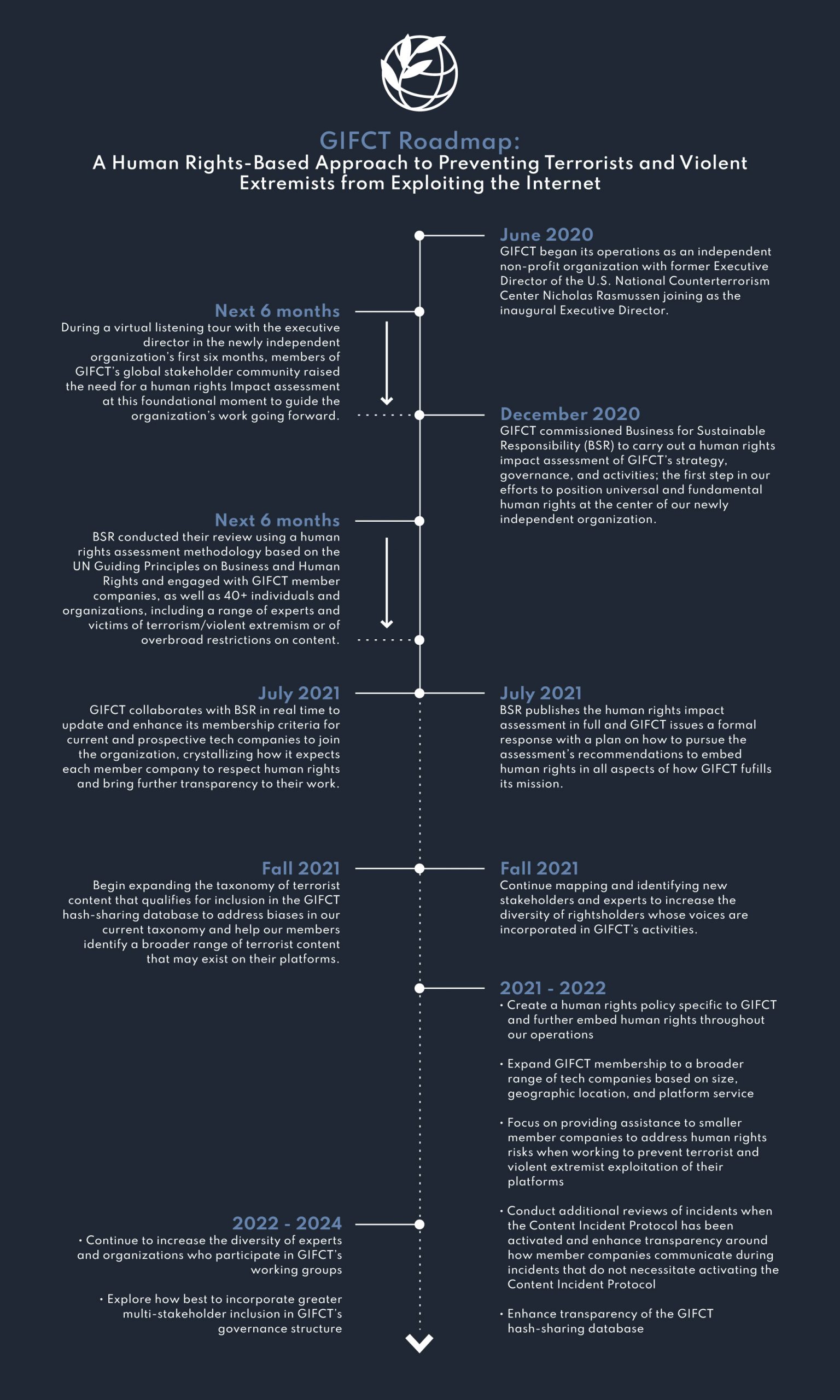We believe that the respect of universal and fundamental human rights must be central to how we work to fulfill our mission to prevent terrorist and violent extremist exploitation of digital platforms. It was with this belief that GIFCT, in its first year operating as an independent entity, commissioned a non-profit entity called BSR (Business for Social Responsibility) to conduct a human rights impact assessment of the organization’s strategy, governance, and operations that could serve as a guide for all aspects of our work in the coming years.
Today, BSR publishes the GIFCT Human Rights Impact Assessment in full, and our Executive Director, Nicholas Rasmussen, provides GIFCT’s response. After months of interviews with a diverse and global set of GIFCT stakeholders, BSR has offered a series of recommendations on how to pursue rights-respecting approaches to achieving our mission. Our response to this important assessment presents a roadmap for how we’ve already begun implementing some of their initial recommendations and how we will further this work while continuing to grow and develop as an independent organization.
Working with BSR in real time, we have already refined our membership criteria for prospective and existing member technology companies in order to bring greater transparency to our membership process, to set clear expectations and standards for aspiring member companies to meet (and exceed), and, most importantly, to emphasize the complementary and mutually reinforcing nature of combatting terrorism and violent extremism and ensuring respect for human rights. As of this morning, those criteria are now available on our website.
Our commitment to human rights and fundamental freedoms must also be central to how we address terrorist content online. Over the last six months, we’ve conducted a multi-stakeholder effort to expand the taxonomy for our hash-sharing database in order to address biases in the larger counterterrorism field and to combat a more diverse array of terrorist content. We look forward to sharing initial updates to how we will expand the taxonomy next week during the GIFCT Global Summit.
We are steadfast in our efforts to bring greater transparency to our work, broaden the diversity of members, experts and other stakeholders with whom we engage, and embed human rights throughout our operations, including creating a human rights policy specific to GIFCT. BSR’s 47 recommendations serve as concrete actions to help GIFCT do this.
The publication of this assessment does not signify the end of an obligation for GIFCT. Rather, it provides a comprehensive blueprint that we are already baking into all aspects of GIFCT’s broader strategic planning. In the spirit of transparency that Nicholas Rasmussen laid out as an organizational value when he joined GIFCT one year ago, we will be public about how we are doing this work. In six months’ time, we plan to convene our stakeholders in order to share our progress and invite further input on what more we can do.
We are grateful to BSR for the time and effort they put into this assessment and the crucial role it has already begun to play for our organization. We look forward to discussing GIFCT’s response to BSR’s Human Rights Impact Assessment with David Kaye and an esteemed panel of practitioners and thought leaders from the human rights community at our Global Summit next week.
View BSR Assessment Click to View BSR Blog




